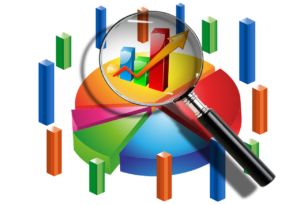Speak to me!!!
Turnover is Vanity, Profit is reality, Cashflow is Sanity.
The way we communicate with our staff, our customers, our wider team and our suppliers has changed as a result of the global pandemic we are living through right now. But what about how you understand your business. I would argue that in times of change it is much more important to understand how to talk “Business”.
Do you speak business? Can you read the numbers? Would you recognise a cry for help from your business?
All too often businesses, especially small owner managed businesses, rely on their accountant to act as the translator between themselves and the business they work so hard at.
You give your all to your business, working 60 – 80-hour weeks sacrificing time with your family, your friends and yourself, yet you never ever talk to it. How bonkers is that?
You see your business talks numbers and logic – every day, every hour it whispers and shouts at you. Are you listening? Or like so many business owners are you abdicating your relationship to your accountant or book-keeper?
The numbers your business showers you with will tell you everything you could possibly want to know, but like your teenage children, some things they tell you are more important than others.
You need to listen when they are in trouble, but not when they are talking about the latest video game. Listen when they tell you their worries and their dreams, or when they bring back their grade reports, turn a deaf ear to some of the noise they fill their lives with.
So, what is important? You tell me! You know your business better than anyone, take a moment to ask yourself what is important to my business? Is it cash in the bank, is it debtor days, is it number of visits to the website, is it turnover, profit, take home pay, customer satisfaction scores or number of suppliers who have put you on stop. Also ask what is not important right now? Get a dashboard together of the most important numbers in your business and work out how to get those numbers regularly.
It is easier than ever to have these numbers at your fingertips, with online banking, web-based accounting packages and apps for absolutely everything.
Not knowing what you have in the bank account, is like not knowing where your teenage children are hanging at night.
We all have our comfort zones when it comes to our business, tasks and activities that we fall back on when we are in need of comfort and ease. In my years as an accountant and a coach, I have heard so many excuses for people not being proactive with their business. They are too busy, they don’t have the skills, they “don’t do maths”, and that is what I pay my accountant for. I am not wanting business owners to become book-keepers overnight, you don’t have to actually do the transactions that make up the accounts function in any business. What you do need is to understand the numbers your staff are providing.
Talk to me if you don’t understand what your business is telling you. Book a finance review now
There are two type of financial reports:
Statutory accounts
These are for HMRC and Companies house and required to adhere to a strict structure. They are compliance documents required once a year and best produced by your accountant.
Management accounts
These are the reports that contain the information that you need to run your business.
Have these monthly at least, if not weekly. If money is an issue weekly accounts are a must. They can be in any format that suits your business and can track any revenue and expenditure that you understand needs to controlled better.
There are Four Key reports to include
Reports that look to the past – what has happened in my business
- Profit and Loss account: A detailed look at the things my business has earnt or spent in the period under consideration. For decision making purposes, you can ignore things like depreciation and foreign exchange gains and losses (unless the decision is about dividends when you absolutely need to know your statutory profit). You will need to include things that you have committed to but not yet paid for.
- Balance sheet: A measure of exactly what the worth of you business is at any one date or point in time, typically the end of the month. It includes who owes you money, who you owe money to and where the cash is hiding in your business.
If you have a computerised accounting package these reports will be readily available to you. When you run them, take a moment to ask what your business is trying to tell you. If you don’t understand, or it doesn’t feel right, talk to your bookkeeper or accountant, or come and speak to me.
Reports that look to the future, what will happen in my business
- Budget report: How I expect to make money in the next few months or years and how much will I have to invest to get that level of income. In times of change such as we are facing now, it is of absolutely no use to take last year’s figures and add 10%. Start from the bottom up. How much to you intend to sell to each customer and what does it cost in these changed times to recruit, service and keep a customer.
- Cashflow report: Follow the money, what will I spend when and when will I get paid by my customers, what do I need to borrow and when will I repay that.
These are more difficult to prepare because there is an aspect of crystal ball gazing going on. Don’t delegate completely to your accountant – they don’t know what is going on in your business right now but do ask them for help if you can’t prepare them yourself.
I am a qualified accountant and have helped many businesses understand their numbers and their important metrics. If you need me, book in for a virtual coffee here or a longer strategy session and we can reconnect you to your business. Book here.






